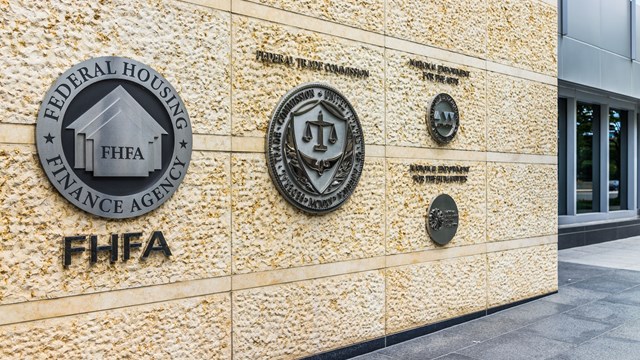
Condominium associations should seek professional help before signing on the dotted line of an unfamiliar contract. Signing too quickly may result in big regrets, say managers and attorneys. Be cautious, and nail down the specifics first. Not addressing such things as missed deadlines, use of improper materials, shortcuts and payment can result in expensive litigation. That’s no way to save money.
“With legal documents, the biggest mistake is that they’ll sign them without having them professionally reviewed,” says John A. Facey, III, a shareholder and director of the law firm of Kenlan, Schwiebert, Facey & Goss in Rutland, Vermont. “The central pieces of the agreement they talked about come back to bite them, because they weren’t included in the contract.”
Even a small job counts. “I think every contract requires proper preparation, and every contract is important,” says Attorney Franklin G. Pilicy, founder of the Law Office of Franklin G. Pilicy, P.C. in Watertown, Connecticut. “The biggest mistake is not fully understanding everything that is in the contract. By that, I mean the contract is provided by a vendor, and signed by a manager or association without fully understanding all of the provisions that are in that contract. There are such things as automatic renewal provisions and termination provisions that contain additional penalties, or rights of first refusal (meaning the board must offer a service back to that contractor first on any future contract), or one-sided dispute resolution that requires the association to pay any fees or costs of litigation, and may require a very high interest rate—almost a penalty—for failure to pay on time. When the case ends up in court, we spend more of our time trying to defend against poor language in a contract than over the actual service.
“They usually end up in court because the relationship with the contractor soured for one reason or another—sometimes because the contractor and the association have a different concept of what the work is,” Pilicy says. “It needs to be clearly spelled out. And the board needs a provision for early termination if they’re not satisfied with the performance. A better approach is to have an association attorney write the contracts, even for routine services—landscaping, snowplowing, any kind of improvement.”
Attorney Michael Merrill, a partner at the law firm of Merrill & McGeary in Boston, stresses familiarity with legal pitfalls. “A lawyer looks at contracts differently than lay people,” he says. “We’re familiar with where contracts are breached, and we want to guard against that. We want to clearly define the gray areas in a contract, so that the rights of both parties will be less in dispute.
“The contracts I do most are mostly management contracts and owner-contractor contracts. These include the building envelope, roof repairs, window replacement, cable TV and roof antenna contracts. They are complicated, and the board recognizes right away that they probably need legal help on them. You may have a $1.5 million contract or a $15,000 contract; you still need to know those things. An attorney with experience can save time and money through familiarity with the basics. If you don’t get the quality of the work you expected, in a timely fashion, you’re going to feel you were taken advantage of—or you may have been, in fact, taken advantage of—and you don't have the ability to go after the contractor because it’s poorly written.”
In other words, attorneys warn, don’t go into those dark woods alone, he says. “If legal fees are a consideration, they could always say ‘Hey, this is not that complicated; will you just look at it over an hour?’ The lawyer will say yes or no. Having a good relationship with a lawyer can handle the legal fees issue. You just say, ‘Understand, it won’t be a major contract, so just glance over it and send me an email.’ I'll do that. Most lawyers in an ongoing relationship will.”
That’s far better than paying for litigation, Merrill says. “Getting into a dispute is very complicated. In a situation where there’s a breach of contract, or a problem with a contract, and it comes to me, I may look at it and see it wasn’t well thought out, or even looked at, at all. Sometimes, boards get a proposal from a contractor with a signature line; they sign the proposal and that’s it. I only see it if there’s a problem.”
Problems do, of course, arise. “A lot of vendors know they’re better off if the contract is a little vague,” says Facey. “They know where their sore spots are. In a recent case, it was pretty obvious the vendor knew the contract was not very specific on what they were going to deliver. The client had been very specific, in words, when they were discussing it, but it was not in the contract. The vendor said ‘you didn’t contract for that higher level of service.’ The bigger associations tend to call before signing a contract, and ask us to look it over very carefully. After I’ve done that, I’ll call them and ask ‘What did you and the vendor talk about having in the contract?’ I'll look for that in the contract. If it doesn’t say it, I'll go back and say, ‘Look, it’s got to be in there.’”
It may be difficult to know what to look for, Facey says. “There are various kinds of contracts—landscaping, property, cable, Internet.” Wireless Internet, cable, broadband types of contacts are complicated: “Whether it’s broadband or wireless; they’re not hefty enough. When the COA goes to look at the contract, they see no specifics, or what they bargained for, in the contract. We had one recently where it was critical that the service be completed by the agreed-upon date. ... We designed it so that if it was not up and running by November 15, it was an immediate default, and that’s exactly what happened. We terminated the contract. The language in the contract allowed us to give them very short notice.”
Managers who recognize the wisdom of legal assistance are cautious, despite familiarity with contractors.
“We make sure the company is properly insured, per what’s recommended from regular business practices and the insurance company,” said Dan Rivers, PCAM, CMCA, AMS, the director of the condominium division at G&G Management in, Newton, Massachusetts. “We require that all insurance certificates are submitted prior to the contract being signed.”
He, too, is cautious about automatic renewals or long terms of agreement. “You see this especially with elevators and laundry contracts. They’ll have automatic renewal or very long cancellation notification clauses. We try to nix that. There needs to be an ‘out’ clause for the association if they’re not happy with the services. It’s hard for boards to remember these seven-year contracts are renewing; they’re easy to miss and we want to make sure the associations are protected.”
On Your Own?
In the case of self-managed buildings, or HOAs, the answer is the same. Don’t guess, and don’t take shortcuts. The litigation impacts are the same.
“If they’re self-managed, then they don’t have a property manager, so it’s important to have an attorney take a quick look at the contract before they sign on the dotted line,” Facey says.
Merrill concurs. “A lot of my self-managed people are acutely aware of what they don’t know. Because they don’t have a manager, they will tend to come more frequently for legal advice. Even managers are very cautious; they know they’re not lawyers, and don’t want to do work that might be considered legal work, so they will bring in a lawyer because they understand there’s a risk there. They’re making the right call. I’m not saying you have to go to a lawyer for every contract, but certainly the major ones.”
In Vermont, ski area homeowners are seasonal, and thus at a disadvantage. “We have people from New York, Connecticut and Massachusetts on the boards up here in Vermont, and they don’t have any way to check out the contractor,” Facey says. “They don’t know a guy’s reputation in the community. If they have a good property manager whom they rely on, obviously they’ll call the firm and discuss it.” Either do that, or ask a lawyer, he says. They might also look for someone on the condominium board who lives in the community, or another large property owner, and talk with them.
Managers, Beware!
Some boards rely on managers for smaller, routine contracts—“more minor contracts, where they might go in with a vendor they already have knowledge of," Merrill says. But another precaution comes into play here.
“Managers should never sign contracts for the association,” says Pilicy. “Even if they sign as the agent of the association, a manager is going to be named as a party to (any litigation),” he says. “Sometimes (in a dispute), the insurance company will defend the association but not the manager. The manager has to get their own attorney. You end up with two attorneys. Also, that can create conflict between the manager and the association. A contract should always be signed by an officer of the association, authorized by the board of directors to sign that contract. Most managers, on some level, know this, but the board will tell them to just go sign it as a matter of convenience. But it can be problematic, because you may have a different manager and board by the time it comes to court. You have a whole different case. You never want the contract to be the issue—you want performance, or lack of performance, to be the issue.”
There are qualified exceptions. G&G Management oversees contracts that both do and do not require attorneys, depending upon their familiarity.
The company, Rivers says, uses a previously vetted agreement, one already seen by architects or other experts. “We start off with a set of detailed specifics,” Rivers saya. “When it’s for a smaller-scale contract, such as landscaping, we will put together a set of specifications, working with the board, and consulting experts as needed. On bigger projects, we usually need a more detailed contract, and that entails reviewing it with the association’s attorney. We will make sure to include this projected cost up front when we put together the total project costs.
“Once we have a contractor in place, we have a standard contract we’ve put together, with an attorney and the association,” he explains. “We’ll put together an addendum with the specifics of work being done so they’re not giving us an independent bid on their form. It has areas for them to put in their own information—numbers, etc. For an example, contracts for snow removal may have different prices for different depths, and ours may have different specifications—we might have ‘up to 1,’ ‘1 to 3,’ etc., on ours, while they may say ‘1 to 4’ —so it's not apples to apples. We want to make sure they are compared equally. Once that’s done, the association’s attorney may review it again, along with any experts needed, to make sure the association is fully protected. If it’s larger scale, with a lot of moving parts—roofing, siding, paving and so on—you have the association's attorney review it.”
These work best in ongoing relationships. “We have the standard ones for small contracts, so that’s not a big deal,” Rivers said. “But for those that are more detailed, where we feel they should have an attorney involved, I'll step in and stress to the board why it's necessary.”
Bottom line, Pilicy says: “Every contract should be prepared by an attorney, signed by the association, have a clear termination provision and a clear dispute resolution provision!”
Ann Connery Frantz is a freelance writer and a frequent contributor to New England Condominium.






Leave a Comment